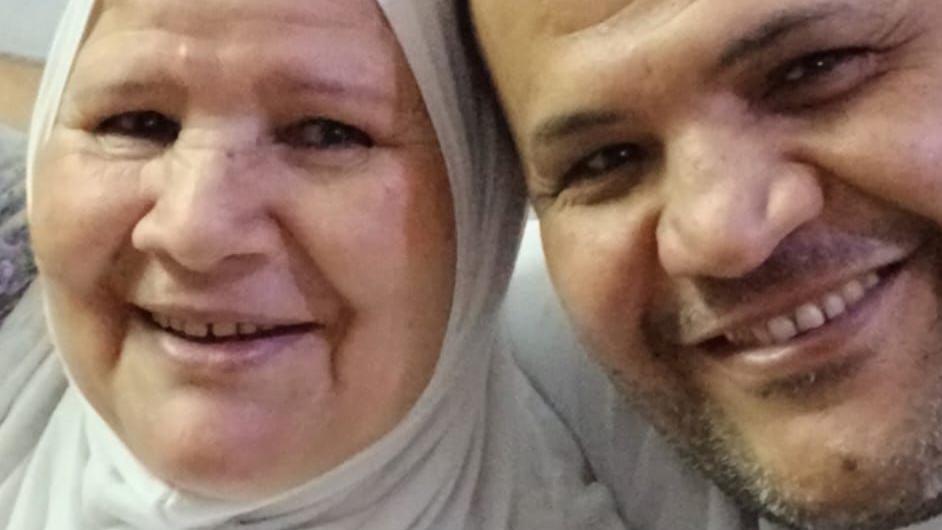US couple 'walked for hours' before dying in Hajj heat
Heartbreaking last text from mum before Hajj heat death
- Published
A US couple who died during the Hajj pilgrimage in Saudi Arabia were walking for over two hours in scorching temperatures before they succumbed to heat stroke, their daughter has told the BBC.
Alhaji Alieu Dausy Wurie, 71, and Haja Isatu Wurie, 65, of Bowie, Maryland, were among an estimated 1,300 people who died during the annual pilgrimage to Saudi Arabia.
Temperatures during this year's gathering exceeded 122F (50C) at times.
Saida Wurie told the BBC her parents' tour group had failed to provide many of the items it promised, including food and adequate water.
The Sierra Leone-born couple went missing on Sunday 16 June, two weeks after arriving in Saudi Arabia.
Days later, the younger Ms Wurie was informed that they had died.
The grieving daughter told the BBC the Hajj pilgrimage was "very important" to her parents, and they had paid $11,500 (£9,000) each to go.
"It's something that they wanted to do their entire lives," she added. "They were beyond excited."
The couple travelled to the Middle East with a group of nearly 100 other pilgrims through an American touring company operating out of Maryland.
According to Ms Wurie, "a lot of the things promised to them weren't provided".
"They went a few days having to find food for themselves, even though the package was supposed to come with meals every day."
With minimal supplies in the smouldering heat, the couple told Ms Wurie that they were "taking it a day at a time" and making sure they stayed hydrated.
The BBC has contacted the company for comment.
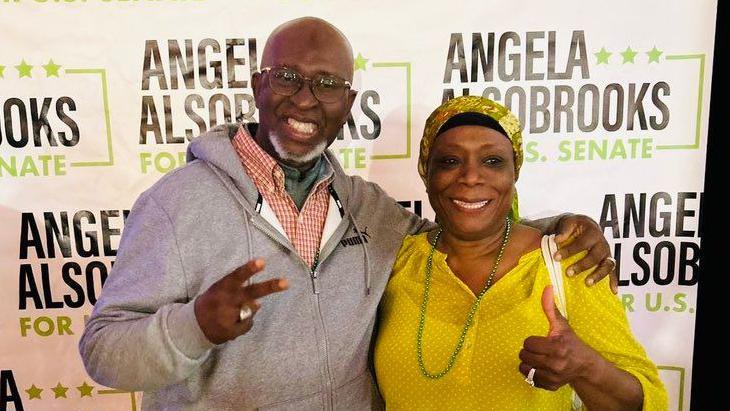
The Wuries sent a last text to their daughter
In their last text exchange - after several missed calls - Ms Wurie said that her parents told them that they had been "walking for over two hours".
Soon after, consular officials and a member of the same tour group confirmed that the couple had died.
With the help of consular officials, Ms Wurie was able to determine which cemetery her parents had been buried in, although they have not yet pinpointed the location within the burial ground.
"They don't have their personal effects," she said. "It's a lot of questions, and we need to find some answers."
Ms Wurie said she plans to travel to Saudi Arabia to find where her parents were interred.
She also told the BBC that the tour company had said it would provide the proper visas and registration for the trip, but failed to do so.
According to the official Saudi news agency SPA, most of the Mecca pilgrims did not have official permits. The process of obtaining official Hajj permits can be costly or complicated, however.
The Hajj is the annual pilgrimage by Muslim people to the holy city of Mecca. Those who are financially and physically able to complete the journey are expected to do so at least once in their lifetime.
Saudi Arabia said about 1.8 million people took part in this year's pilgrimage.
The country's Health Minister Fahd Al-Jalajel said officials recently began making efforts to raise awareness of heat stress.
Saudi Arabia has recently come under criticism for not making the Hajj safer, particularly for unregistered pilgrims.
Those without proper permits struggle to access spaces that provide air conditioning and other resources for official travellers.
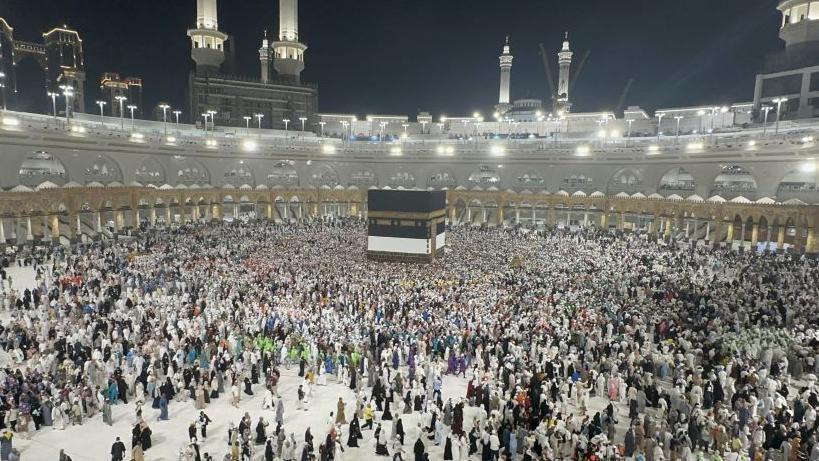
The Hajj is the annual pilgrimage by Muslim people to the holy city of Mecca
Related topics
- Published23 June 2024
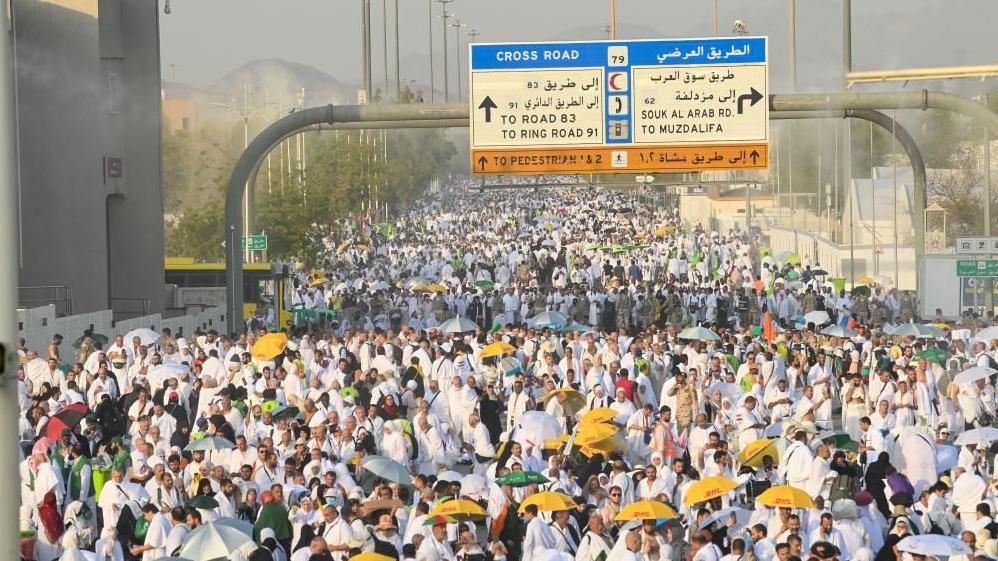
- Published22 June 2024
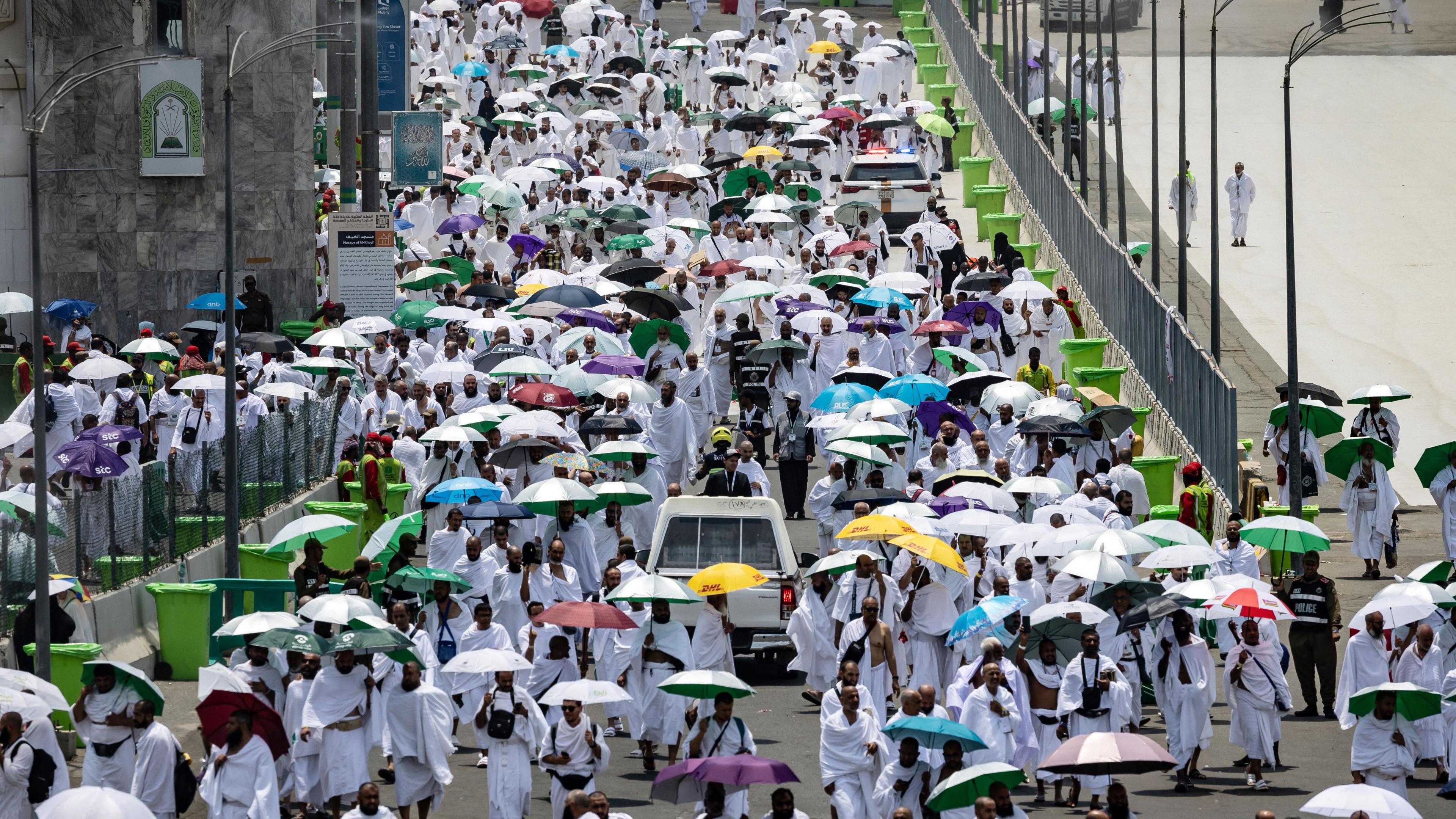
- Published20 June 2024
